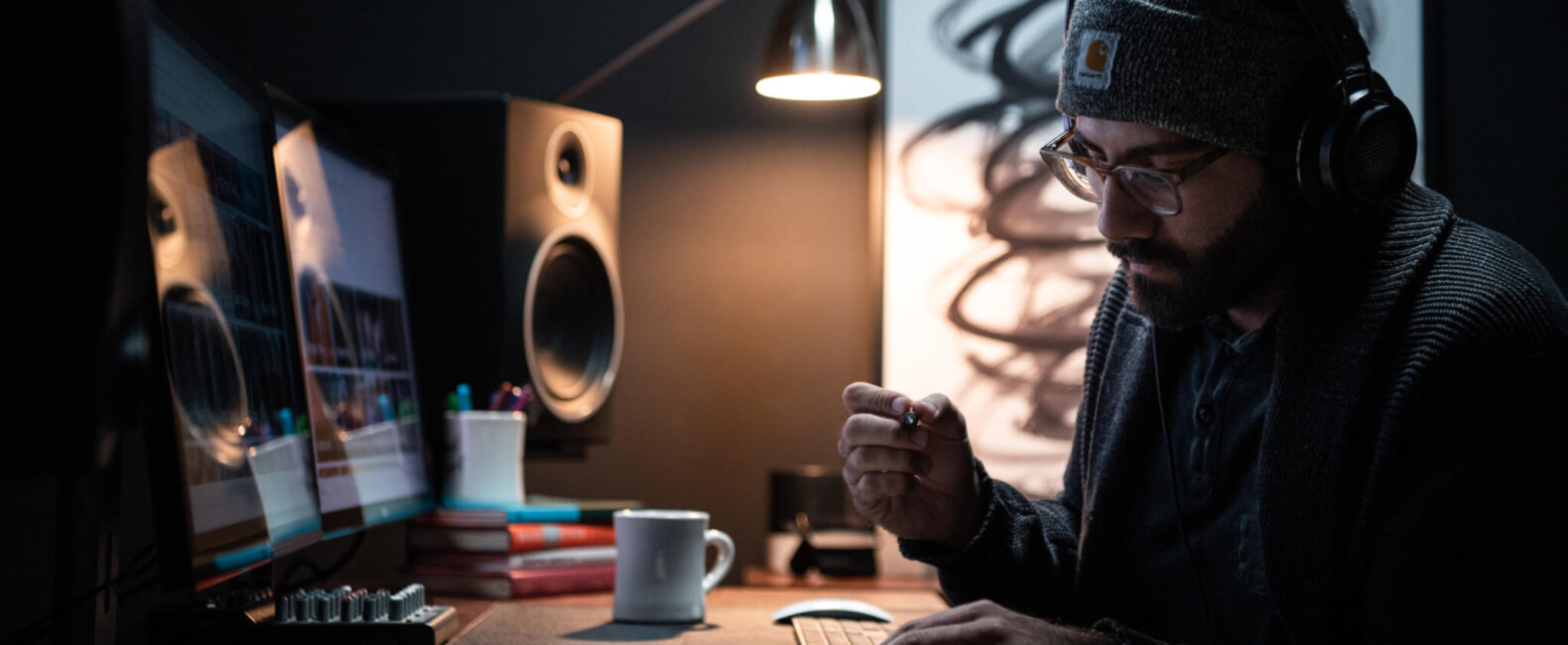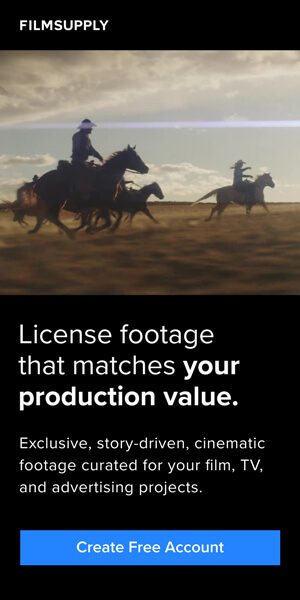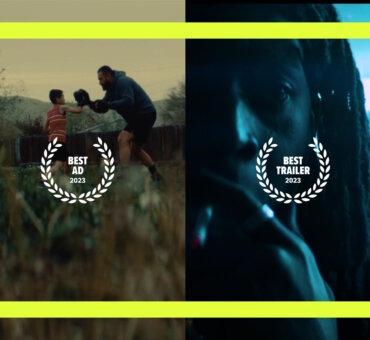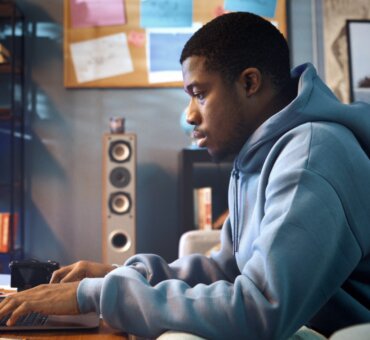If you’re reading this, chances are you’re one of the millions of people around the world who’s spending more time than usual inside. Luckily for editors, our work is generally not dependent on a specific location. If we have a computer and our brain, then we can work. But, that isn’t to say remote work is easy.
For those used to working in an office environment, or even a remote office outside of our home, then it can be a difficult transition. Just like anything else, being an effective remote worker takes practice and intentionality. Think of it like a muscle. And hopefully this blog can help ease some of the soreness.
We reached out to a few of our editor friends to see what tactics they use to keep sane while working from home. Paired with some of our own experiences, we put together some tips to make you more effective in the editing bay.
Here are 6 tips for being a stay-at-home editor.
Commit to your home office
Even though this period of isolation is temporary, you can’t treat your workspace that way. It’s incredibly important to set up your editing bay and office space in a way that’s comfortable and conducive to getting work done. Instead of working from the couch, or setting up your monitors on the kitchen table, do your best to be intentional about your workspace.
The more comfortable you are in your space, the more likely you’ll spend time in that space, which also means you’ll get more work done. Second, it sets a designated area for productivity, and leaves the rest of the house for everyday activity. It’s better for your brain if you don’t mix the two.
Protect your time and space
If you’re going to be intentional about your work setup, you need to be intentional about your time and space as well. It’s essential that you’re clear with the people you live with about what is a workspace and what isn’t a workspace.
When you’re working, set up office hours. Also, set up non-office hours. Be incredibly clear with the people around you what your expectations are for time off and time on. And, when you do take time off, make sure it’s real time off. Don’t let your work and breaks merge into one big gray area. Instead of letting distraction take hold and veering off into Instagram or YouTube, take control of that moment and go for a walk or eat a snack. Then, get back to work.
Set Goals
If you take one thing away from this article, let it be this: Without goals, you won’t get your work done. Once you set a goal, it becomes a reality. You must be accountable for it. Here’s what acclaimed editor Michael Ruscio (Six Feet Under, The Sopranos) has to say about that:
“When you approach Avid, Final Cut, Premiere at home, remember you’re on an internal work clock. Give yourself small goals: ‘I’ll finish this sequence and then check my email. I’ll walk the dog and then get this scene into first cut.’ Most specifically, give yourself your own call sheet. Whatever you need to accomplish that day, you can, on your own terms, but make your day.”
Start With the Hard Stuff
There’s a time limit on our energy and attention as soon as we start our day. We may not realize it, but we only have so much gas until our most effective brain begins to slowly shut down. So, start your day with the most difficult tasks and save administrative, mind-numbing work for later.
If you have a sequence that’s particularly challenging, or need to get on a call with your director to brainstorm creative solutions to a scene, we’d suggest stacking those tasks on the front-end. This goes hand-in-hand with the advice that award-winning editor Spencer MacDonald offered:
“I think the advice I have for remote work is to work quickly, intuitively, and instinctively so that your mind doesn’t have enough time to second guess what you’re doing. That way you can get into your own flow, and work out of that flow.”
Keep in Touch
A lot of editors are naturally introverted people. We need time by ourselves to recharge our creative batteries, so we can get back to doing what we do best. But, no one needs this much time by themselves. So, be proactive about reaching out to your fellow editors, and co-workers.
But, just reaching out is not enough. Particularly for teams, you need to make sure you’re over-communicating. Go above and beyond to schedule meetings with intentional purposes, let them know what you’re working on for the day, and most importantly, check in on how they’re doing.
And for freelancers, build your own team environment. Start video chats with your peers, create a Slack channel, do whatever it takes to make sure you’re leaning on your community. Here’s acclaimed editor Dana Shaw:
“It’s important for all of us as freelancers to support each other as small businesses right now in any way we can. Check-in with your neighbors, be friendly and respectful to people as much as possible, offering help to the people and businesses who have helped you grow.”
Take It Easy On Yourself
Here’s a note from Michael Ruscio:
“Just tell yourself, ‘Since I’m not driving to work, my day will be shorter. I’ll be even more productive.’ Take advantage of being in your own environment. Take a walk, even a short one around your immediate environment.” (Editor’s note: Make sure you’re complying with your city’s current guidelines.)
In other words, try not to be so hard on yourself. Literally the entire globe is trying to figure out how to best deal with all of this isolation, so it just makes sense that it will take time for you to adjust. If you find it hard to concentrate on your edit, take a quick break, and get back to it. Don’t let guilt or worry creep in. Just trust that you will do what humans do best—adapt to the situation at hand.We’re storytellers, and that’s a powerful thing. No matter what the future holds, there will be a place for your talent and your skills. So, on that note, we’ll let Dana send us off with this great thought:
“At the end of the day, we are storytellers and honing our tools has nothing to do with social media or group-conditioned responses. It has everything to do with our community’s health, well-being and our ability to stay focused and bring collaborative material to the table. As long as we have a pen, some paper, and our wits about us, we can contribute to the future. Older generations documented wars on the front lines with bolex cameras and sound equipment in the trenches; we can sit tight and stay focused on what is in front of us.”






